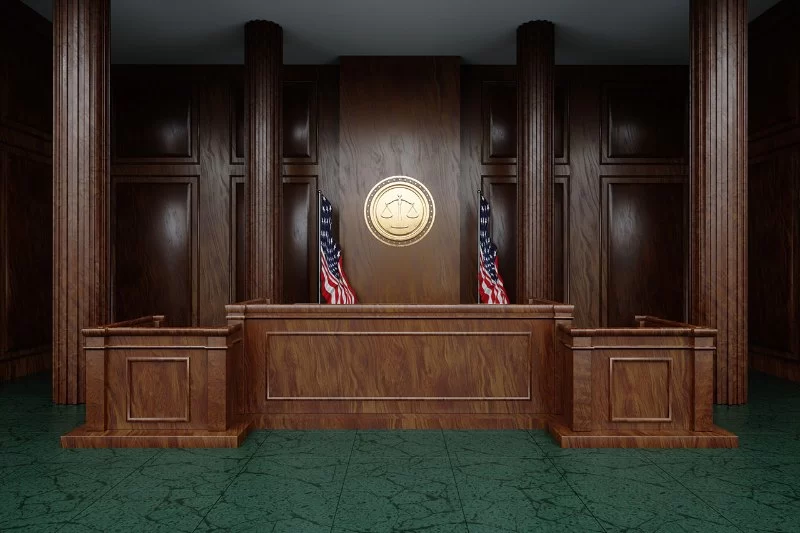- Understanding Probate Hearings
- Preparing for Your Probate Court Appearance
- What Happens During the Hearing
- Common Issues That May Arise
- Real Cases and Personal Experiences
- How Fred Miller Lawyer Can Help
1. Understanding Probate Hearings
When a loved one passes away, managing their estate often requires a legal process known as probate. A probate court hearing is a formal proceeding where the court validates a will, appoints an executor, and ensures that assets are properly distributed according to the law. Understanding what to expect during a probate court hearing can make the process less intimidating and help you prepare effectively.
In the United States, probate laws vary by state, but the purpose of probate remains consistent—to oversee the lawful transfer of assets and handle any disputes. Whether you are an executor, beneficiary, or family member, knowing what takes place in court can save you from unnecessary confusion and emotional stress.
2. Preparing for Your Probate Court Appearance
2.1 Gather All Required Documentation
Before attending the hearing, ensure you have the necessary paperwork ready. This typically includes the original will, death certificate, and a detailed list of the deceased’s assets and debts. If you are the appointed executor, you may also need to file an application for probate with the court in advance.
2.2 Understand Your Role in the Process
The executor (or personal representative) plays a crucial role in probate proceedings. They are responsible for notifying heirs and creditors, managing estate assets, and ensuring that all taxes and debts are paid before distributing inheritances. Familiarizing yourself with these responsibilities can prevent delays in court.
2.3 Dress and Behave Professionally
Although probate court is generally less formal than criminal court, it still demands professionalism. Dress appropriately, arrive early, and be respectful to the judge and all parties involved. This not only demonstrates respect but also helps the court process proceed smoothly.
3. What Happens During the Hearing
3.1 Initial Review and Verification
The hearing usually begins with the judge reviewing the petition for probate. The court verifies that the will meets legal requirements—such as signatures and witnesses—and confirms the validity of the document. If no will exists, the court applies intestate succession laws to determine heirs.
3.2 Appointment of Executor or Administrator
Once the will is verified, the judge formally appoints an executor (or administrator if there’s no will). This person receives “letters testamentary” or “letters of administration,” granting legal authority to act on behalf of the estate.
3.3 Addressing Objections or Disputes
Probate hearings sometimes involve disagreements. Family members may challenge the validity of the will or contest certain provisions. The court allows each side to present evidence or testimony. While these disputes can be emotional, having legal counsel ensures your interests are properly represented.
3.4 Court Decisions and Next Steps
After hearing all sides, the judge issues orders related to the estate—such as approving the executor, authorizing asset distribution, or requiring an inventory report. Some cases are resolved in one session, while others require follow-up hearings if issues remain unresolved.
4. Common Issues That May Arise
Probate court hearings often surface hidden complexities. Common issues include unclear wills, unaccounted assets, or disputes over property value. For instance, if one beneficiary believes another received an unfair share, the court must interpret the will’s intent and make a ruling based on state law.
Delays can also occur due to missing paperwork or lack of communication among family members. In some cases, creditors may file claims that must be validated before distribution. Understanding these possibilities helps set realistic expectations about how long the process may take.
5. Real Cases and Personal Experiences
Consider a case in Ohio where two siblings contested their father’s will, claiming undue influence by a third party. The probate court hearing lasted several months, involving witness testimony and handwriting analysis. Ultimately, the judge ruled in favor of the original will, emphasizing the importance of proper documentation and legal oversight.
In another situation, a widow in Texas discovered that her late husband had property he never disclosed. With help from her attorney, she was able to present the new evidence during a follow-up hearing, ensuring all assets were fairly included in the estate. These real stories highlight how preparation and legal guidance can make all the difference during probate.
6. How Fred Miller Lawyer Can Help
Fred Miller Lawyer provides expert legal assistance for families navigating probate court. Whether you’re facing a complex estate, a contested will, or confusion about your executor duties, Fred Miller Lawyer ensures that your rights are protected and your loved one’s wishes are honored. Their team offers personalized guidance—from preparing documents to representing you in court—making the process smoother and less stressful.
By choosing a qualified attorney like Fred Miller Lawyer, you can approach your probate court hearing with confidence, knowing you have an experienced advocate on your side. Legal matters involving family and inheritance are sensitive, and professional support can bring clarity and peace of mind during a difficult time.


 ascent law reviews
ascent law reviews victoria campos attorney
victoria campos attorney covington law firm washington
covington law firm washington living trust lawyer reno
living trust lawyer reno heidari law group los angeles
heidari law group los angeles 1551 north tustin avenue santa ana
1551 north tustin avenue santa ana